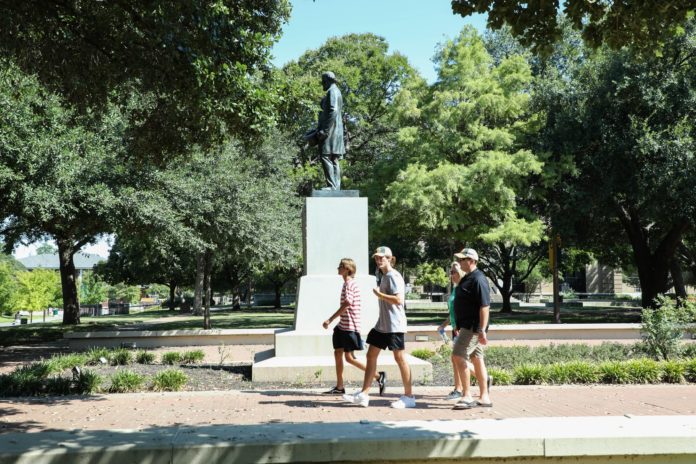
By Ava Dunwoody | Staff Writer
Baylor University President Linda Livingstone sent an email to parents Wednesday night outlining the repercussions of noncompliance with COVID-19 regulations. Penalties include suspension and expulsion.
Two hours later, a similar email with additional information was sent to students. The email, sent by Dr. Sharra Hynes, associate vice president and dean of students in the Division of Student Life, updated punishments for noncompliance, including a repeated suspension and expulsion threat, and added a “fine of $250 per occurrence” for breaking local and state ordinances.
“Baylor students who fail to comply with Baylor Policies and/or local and state resolutions and Executive Orders, and thus place the health and wellbeing of others at risk, may face significant consequences that include suspension or expulsion from the University,” Hynes said in the email.
Student organizations, including Greek life, face the threat of “removal of charter” for failing to comply.
In order to enforce the ban on social gatherings with more than 10 people, students living off campus will see “an increased law enforcement presence in the evenings,” according to another email sent Thursday by Livingstone. In the email, Livingstone said, “I respectfully request that you have a conversation with your student regarding the University’s COVID-19 policies and consequences for non-compliance as soon as possible.”
Tulsa, Okla., senior Addi Smith, spokeswoman for Baylor Delta Delta Delta, said she believes parents can act positively in terms of holding students “to a higher standard,” but it is ultimately the responsibility of each student to manage their own actions.
“As college students, we should be able to be trusted to act independently from our parents at this point,” Smith said.
Jason Cook, vice president for marketing and communications and chief marketing officer at Baylor, said there were two separate emails because “the messages are tailored to each specific audience.”
Cook said there was no intention in delaying the student email and attributes the gap to the different offices and accounts from which the two emails came from.
In wake of the recent school closures, including the University of Notre Dame, Baylor included “Time Sensitive” in the subject line of the student email to draw attention to the new implementations before the weekend.
“As a Baylor Family, we need all students, faculty and staff to do their part — both on and off-campus to prevent community spread of COVID-19 as we start the fall semester,” Cook said.
For students, this means that failure to follow the Interim COVID Policies can result in the most severe punishments related to COVID-19 the university has yet seen.
One of the most significant changes includes the risk for student organization charter removal.
Smith said she is worried about how this will impact Greek life.
“It’s a huge deal. The amount of leadership, philanthropy, and service opportunities that Greek life organizations bring to Baylor’s campus is such an important aspect of growth,” Smith said. “If collectively, enough people are concerned and actually taking into account the consequences, then I do think there will be a change.”





